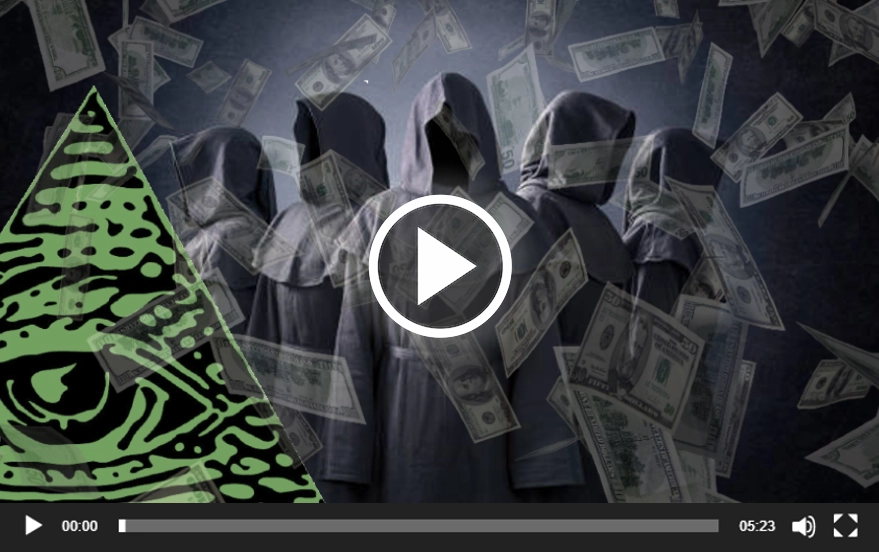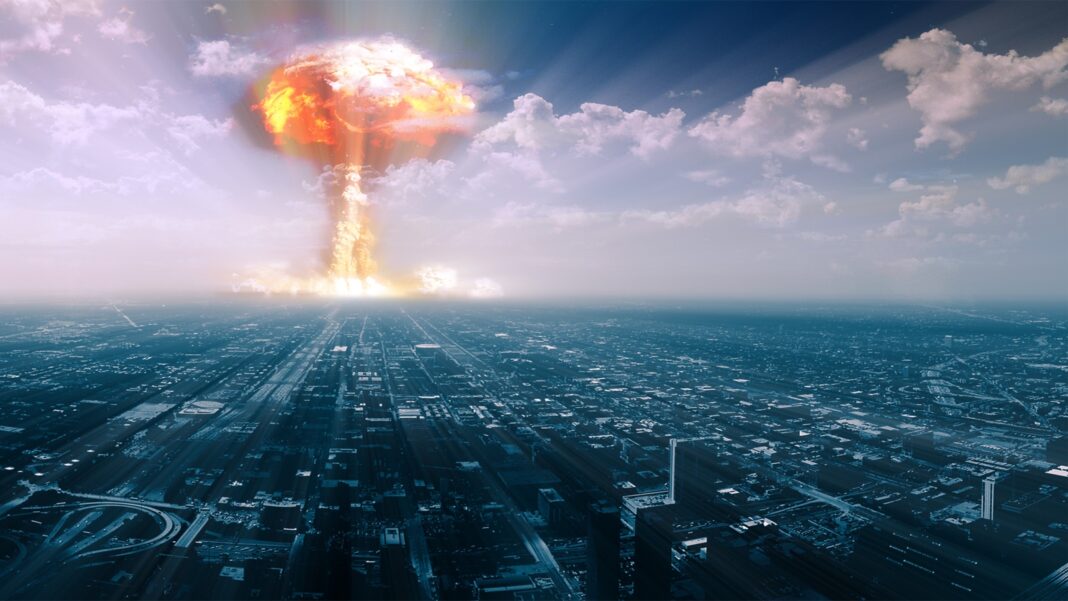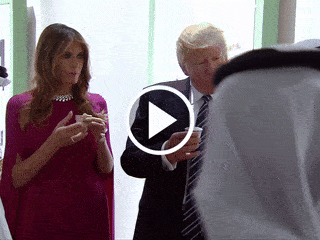In the tempestuous swirl of global politics, it’s always insightful to heed the perspectives of the Russian executive staff and fiscal advisors. Their insights offer a unique lens to view the anticipated future of the tenuous relations between the Empire and Russia, especially in the context of the conflict brewing in Ukraine.
In this deep-dive, we delve into the robust and often fiery viewpoints of Sergey Glazyev, the erstwhile advisor to Russian President Vladimir Putin. Although he left the official government circles in 2019, Glazyev’s views continue to command reverence within the Russian administrative edifice.
He helps illuminate the starkly skewed Western interpretation of Putin, often dubbing him the modern reincarnation of Hitler. The root of this ill-conceived notion is the relentless narrative pushed by the Western Military Industrial Banking Complex (MIBC) that portrays Putin as a despotic figure akin to the infamous Stalin of the USSR in the 1930s.
During Trump’s presidential term, he showcased a curious duality. While he evinced certain anti-establishment tendencies, his stance on the trade war with China echoed the sentiments of the establishment, notably the MIBC, which sought to destabilize China via this economic feud.
When this tactic fell flat, the scapegoat in the media crosshairs shifted from China to Russia. The reasons for marking China were transparent; its formidable economic ascendancy, marked by a tenfold increase since 1995, compared to the modest 15% growth the US economy experienced during the same timeframe.
Further, China managed to sidestep the inflationary spikes rampant in the Western world. The reason? Their monetary expansion was matched by significant economic growth, thereby absorbing a large portion of the financial influx.
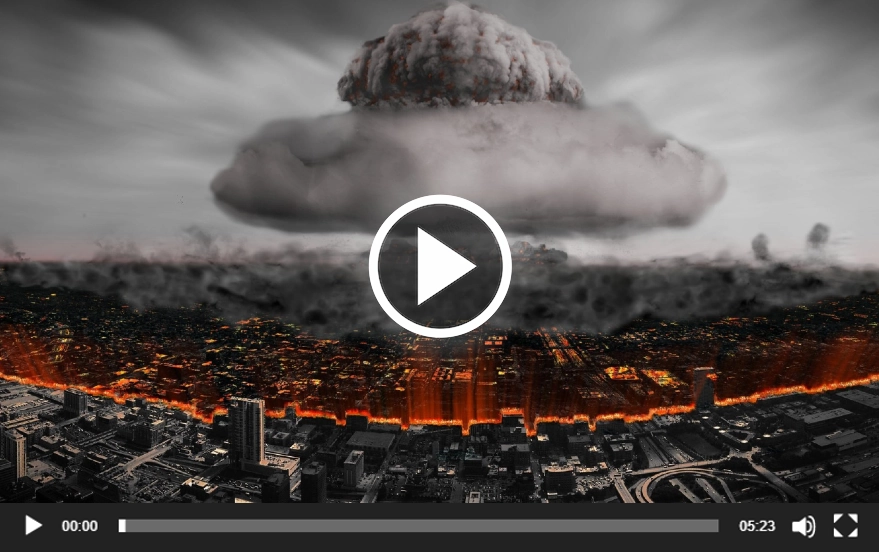
In stark contrast, Western economies faced skyrocketing inflation due to unchecked currency printing, devoid of any substantial economic growth akin to China’s. As a result, many Western central banks inadvertently made inflation their most significant export.
Glazyev posits a provocative theory, claiming the coronavirus outbreak was a premeditated biological attack spearheaded by the US to weaken China.
This ‘attack‘, according to him, marks the second stage of the Western MIBC’s campaign following the failure of Trump’s trade war to deliver the anticipated economic blows.
Delving deeper into Glazyev’s perceptions on global economics, we uncover compelling arguments supporting his stance that the coronavirus was an act of biological warfare targeted at China—a theory that bears alarming plausibility.
Despite the fact that China’s extreme and unscientific lockdown strategies led to considerable financial and psychological strife for millions, Glazyev maintains that the alleged US biological assault on China didn’t create the forecasted economic turmoil.
The revelation of US MIBC’s funding towards the controversial gain-of-function research, purportedly responsible for the militarization of the coronavirus in Wuhan, has raised numerous eyebrows. Consequently, Trump’s continual referral to the virus as the “Chinese virus” reflects a narrative that syncs perfectly with the MIBC’s agenda.
Consider this, Trump’s naming of the virus could be compared to labelling an iPhone, manufactured in China, as a “Chinese phone“—a statement that would inevitably attract mockery.
Melding Glazyev’s theory of the US CIA-led coup in Ukraine, his belief that Russia mishandled the post-coup crisis, and his assertion that the belief of Russia abstaining from retaliation against a NATO nation is naive, we get a complex and disconcerting picture.
Furthermore, Glazyev goes as far as alleging that the US “duped” Russia into permitting their occupation of Ukraine. They allegedly trained Nazi enthusiasts in military academies for future combat, turning a significant number of Ukrainian citizens into docile soldiers following orders from Zelensky’s administration.
Numerous Ukrainians have reportedly been “brainwashed” into servile obedience by Victoria Nuland and Volodymyr Zelensky. Yet, there are intelligent individuals who have evaded this mental subjugation and silently revolt against Zelensky and the CIA for tarnishing their homeland’s future.
Zelensky’s prowess has been evident in his ability to imprison US citizen Gonzalo Lira for critique without facing any retribution from the US government. This demonstrates a clear perversion of democratic principles.
Drawing a parallel between Britain’s role in World War I and the current US involvement in Ukraine against Russia, Glazyev argues that the Western MIBC is replicating Britain’s WWI strategy.
He insists that the ruling elite, threatened by the burgeoning economic prowess of nations like China, India, and other non-NATO countries, especially in the arena of GenIV nuclear energy technology, are prepared to resort to any measures, including military, psychological, and biological warfare, to protect their global dominance.
In conclusion, these geopolitical chess games may have catastrophic consequences, not excluding a nuclear third World War, if the international community fails to intervene and strike surgically at the hidden enemy within.
You have to sit back and wonder: could it be that we are only pawns in a larger game of power plays and pipeline politics? A game masterminded by the Pentagon’s stealthy biowarfare lab tucked away in the heart of Ukraine? This notion is a proverbial hot potato many of us would rather not hold, especially given the United States-funded media’s quick denial of Sergei Glazyev’s assertions about the existence of US-funded biowarfare laboratories on Ukrainian soil.
Think about it for a moment: wouldn’t it reshape our perception of the steadily simmering US/UK campaign against Russia if we paid heed to the often-overlooked nuance of this narrative? Let’s set aside, for the moment, whether Glazyev’s allegations are mere Russian propaganda or cold, hard fact. Picture the leading ranks of Russia’s military establishment standing on the frontlines, every piece of evidence they’ve gathered leading them to a series of startling conclusions:
First, they believe that the Western Military-Industrial-Banking Complex (MIBC) initially aimed to shatter China’s economy by instigating a trade war, but the plan crumbled like a house of cards. The MIBC, faced with this failure, allegedly turned to a more drastic measure: biological warfare. They released a lethal virus from Wuhan labs, seeking to inflict economic havoc on China. Disturbingly, Glazyev’s voice also whispers of the potential development of bioweapons targeting ethnic Slavs, nurtured in the heartland of Ukraine.
When the MIBC’s first and second onslaughts against China failed, they ramped up their efforts to destabilize Russia. They believe this campaign traces back to the CIA-led coup in Ukraine in 2014.
The MIBC is viewed as a venomous puppeteer, investing billions into turning hundreds of thousands of Ukrainians against Russia, rallying them behind Zelensky without a second thought for the moral repercussions.
Sy Hersh, a Pulitzer Prize-winning journalist, broke the story alleging that the US/UK perpetrated an act of eco-terrorism by sabotaging the Nordstream gas pipelines. The Russian military top brass also believe that Western MIBC has been funneling substantial amounts of economic aid and weaponry into Ukraine, aiming to hit Russian soldiers where it hurts.
The stories we tell ourselves shape our perception of reality. For those whose news is curated by networks such as MSNBC, CNN, and the likes of the New York Times, the Washington Post, the Economist, and the Wall Street Journal, Glazyev’s revelations might reek of Russian propaganda. But when reality and opinion clash, it’s reality that has the final say. The truth we can’t ignore is that Russia’s military establishment, which constitutes their MIB complex, probably embraces these points as gospel. And when a belief is this deeply ingrained, a reaction is inevitable.
What could this response look like, and where might it unfold? These questions stoke the fires of speculation.
Military and biological strikes seem unlikely given Russia’s restraint in the war against Ukraine to minimize civilian casualties. Atrocity claims, such as the alleged rape of Ukrainian civilians by Russian troops, often lack solid evidence and seem to exist mainly in the realm of rumors and hearsay.
There’s also the whisper of a potential response in the form of cyber warfare, playing into Russia’s reputation for having a formidable arsenal of skilled hackers.
In his stark assertion about an inevitable arms race, Glazyev mentions the recurring cycle of significant technological shifts every fifty years that could spark global conflict roughly once a century.
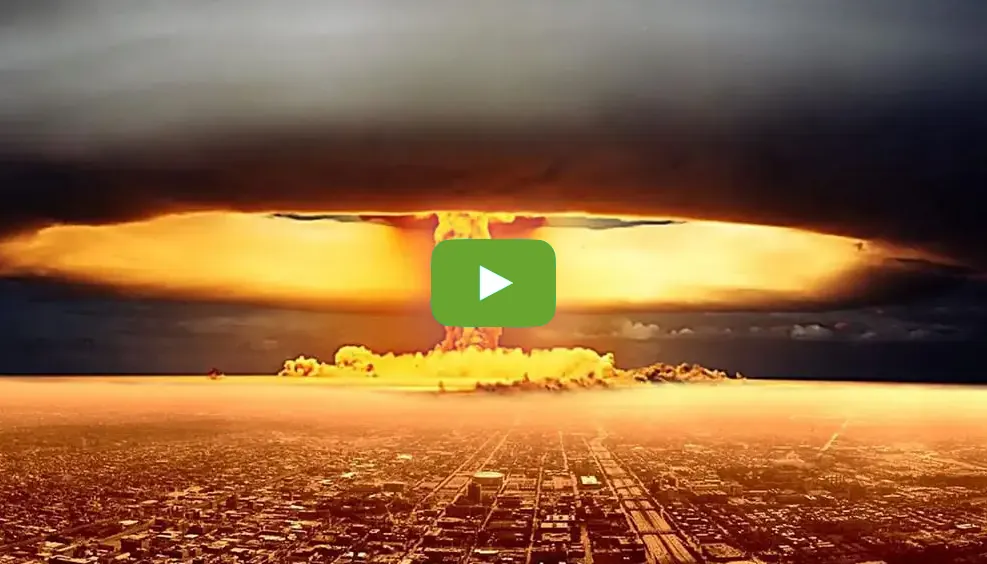
China’s strides in GenIV nuclear energy have outpaced the US, making them a critical player in shaping the energy landscape for the coming century. This shift could motivate the Western MIBC to resort to biological warfare, providing NATO nations a buffer to catch up.
The narrative being spun from the Russian viewpoint of the ongoing Ukraine conflict paints a distressing picture: a global war staged by the Western MIBC to economically cripple Russia and China.
There’s a shared belief among humans to disregard what we have not experienced firsthand. Billions worldwide are ignoring the looming specter of a global conflict. This denial doesn’t erase the existence of this threat, much like the risks linked to storing significant savings in the global banking system, an issue that came to light in Cyprus in 2013.
If this is your first brush with such a perspective, it is a testament to the MIBC’s iron grip on media and its success in silencing dissenting voices. Independent analysts, like Max Blumenthal and Alexander Rubinstein from the Grayzone, retired US Army Colonel Douglas MacGregor, and former Marine Corps intelligence officer Scott Ritter, offer invaluable insight against the mainstream media’s pro-war agenda.
In the face of the MIBC’s media control, many believe in falsehoods, while only a few endeavor to unearth the truth. It’s time we break free from these chains and explore narratives that challenge the status quo.
Take, for instance, Zbigniew Kazimierz Brzezinski, a Polish-American diplomat remembered for his support of mujahideen resistance fighters in Afghanistan. Brzezinski’s doctrine sheds light on the Western MIBC’s belief in controlling the Eurasian economy to dominate globally, regardless of the means employed.
However, their aggressive maneuvers may have unwittingly provided Russian hackers with the necessary code to retaliate through cyberattacks against NATO nations involved in the Ukraine conflict. Yet, despite this knowledge being accessible, many continue to believe the MIBC’s propaganda. Are we then mere puppets in this grand game, or do we have the power to challenge the narrative?
In light of the potential fallout of the MIBC’s actions, it might be wise to consider relocating from densely populated regions in Russia, China, the US, and the UK. Understandably, this might be a daunting step, but in a world where truth is stranger than fiction, it might just be our best shot at survival. Let us brace ourselves for the tempest ahead and ensure we are not swept away in the storm.
The fabric of our shared global story is woven with whispers of international conflict, fueled by the Western MIBC’s silent determination for dominance. It’s a chess game cloaked in shadows, but let me tell you, my friend, Russia’s patience with the West’s incessant provocation is wearing thin. They’re no fool, and recognize the ploy for what it is – a weak attempt to project strength, pushing the limits of Russia’s restraint.

Should the Russians refrain from a riposte, they risk appearing weak, potentially emboldening the Western MIBC’s recklessness. “Well, why does that matter?” you ask. They could turn the heat up on Russia by detonating a dirty bomb on their homeland in their next wave of assault.
The utility of this double-edged sword is chilling. Firstly, it would sacrifice Russian lives, potentially shaking domestic trust in Putin, who currently enjoys an impressive 83% approval rating. Secondly, it would propagate global opposition against GenIV nuclear energy development, particularly as non-NATO countries are the frontrunners in this sector.
Should the Russians refrain from a riposte, they risk appearing weak, potentially emboldening the Western MIBC’s recklessness. “Well, why does that matter?” you ask. They could turn the heat up on Russia by detonating a dirty bomb on their homeland in their next wave of assault.
The utility of this double-edged sword is chilling. Firstly, it would sacrifice Russian lives, potentially shaking domestic trust in Putin, who currently enjoys an impressive 83% approval rating. Secondly, it would propagate global opposition against GenIV nuclear energy development, particularly as non-NATO countries are the frontrunners in this sector.
Imagine the chessboard again. This provocation won’t steer Russian hearts away from Putin, nor will it stunt growth in China, India, Indonesia, and other Eurasian nations. But the Western MIBC seeks to reign over these territories as the linchpin of their continued global economic ascendancy.
The logical next move for Russia? To make a display of their own force before the year’s end. This isn’t an ideal move – the Queen doesn’t like to be threatened, after all. Yet, given NATO’s incessant actions in Ukraine, we may soon witness an undesired retaliation.
Enter the world of cyber warfare, where an orchestrated attack on a critical infrastructure within a major Western city could cause havoc. Imagine a day without finance, without power, transportation, even water. This could be the face of the future if peaceful negotiations are not reached.
Russia’s secret weapon? An army of highly skilled cyber specialists who could launch an attack, mask their footprints, and potentially distribute propaganda to shift the blame elsewhere. The strategy would be neat, clean, and hold the promise of plausible deniability.
As the world sits on the edge of its seat, the call for a negotiated peace agreement grows ever louder. The innocent, after all, would bear the brunt of a cyber onslaught. The power-hungry puppeteers behind the Western MIBC, those who wouldn’t blink at the thought of plunging us into a devastating global conflict, would remain untouched.
The grim reality, however, echoes the British Empire’s role in triggering World War I: the US/UK MIBC, hell-bent on escalating the Ukraine conflict, appears unstoppable in their pursuit of a worldwide showdown.
Based on Sergey Glazyev’s essays and interviews, the winds of change are upon us. He seems to believe that only a retaliation on NATO territory can quell the insatiable appetite of the Western MIBC for conflict.
Glazyev stresses the need for both Russia and China to break free from the shackles of the US dollar for continued economic growth. With advancements in Asian technology development, the days of reliance on the US multinational corporations and technology are numbered.
And as for the upcoming 2024 US Presidential elections? Donald Trump’s chance of victory, according to Glazyev, is slim to none. His animosity towards China has made him a target of the MIBC, despite aligning with their agenda.
The push for a new currency, backed by a range of commodities, is a concept pursued with vigor by non-NATO nations, including Iran, China, Russia, and others in the Middle East. As Western Hegemony crumbles, the question of whether this transition will be peaceful lies in the hands of citizens within the Collective West.
But remember, my friends, the deep underground military bunkers are not for us. They’re reserved for the high-profile Nazis, the Khazarian Mafia families, and their closest allies.
Whether the storm of cyber warfare will rage or subside peacefully is a question only time will answer. Until then, keep your eyes open and stay vigilant.
